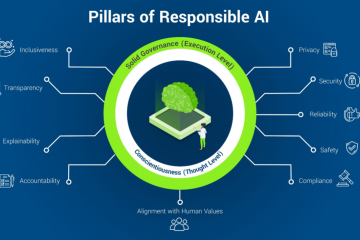Artificial Intelligence (AI) has become an integral part of modern living, transforming homes into smarter, more efficient, and highly personalized spaces. In 2025, AI innovations are redefining the way we interact with our living environments, offering unprecedented convenience, security, and sustainability. Here are five key ways AI is revolutionizing home technology this year.
1. Personalized Living Experiences
AI-powered smart homes are now capable of learning user habits and preferences to create a tailored living environment. From adjusting lighting and temperature to setting up morning routines like opening blinds and starting coffee machines, AI adapts seamlessly to individual lifestyles. Advanced algorithms can even predict user needs, ensuring that every aspect of the home feels intuitive and personalized17. This level of customization has made AI a cornerstone of modern home automation.
2. Enhanced Energy Management
Energy efficiency is at the forefront of smart home innovation in 2025. AI-driven systems like smart thermostats and energy meters analyze user behavior and environmental data to optimize energy consumption. For instance, these systems adjust heating or cooling based on occupancy or time of day, significantly reducing energy waste. Some setups integrate renewable energy sources like solar panels, ensuring sustainable energy management while lowering utility costs457.
3. Advanced Home Security
AI has taken home security to new heights with features like facial recognition, anomaly detection, and predictive analytics. Modern security systems can differentiate between family members, visitors, and potential intruders by analyzing real-time video feeds. They also provide instant alerts for unusual activity while minimizing false alarms. Smart locks with built-in screens and video doorbells add another layer of safety by allowing homeowners to monitor and control access remotely48.
4. Smarter Home Appliances
AI is embedded in everyday appliances such as refrigerators, washing machines, and ovens, making them more intelligent than ever before. These devices can suggest settings, optimize operations based on usage patterns, and even order supplies when needed. For example, AI-enabled refrigerators can track inventory and recommend recipes based on available ingredients, streamlining meal preparation while reducing food waste8. This integration of intelligence into appliances enhances convenience and efficiency.
5. Proactive Health Monitoring
AI has extended its reach into health monitoring within homes. Smart devices now track air quality, humidity levels, and even occupants’ vital signs to ensure optimal living conditions. Advanced systems can send reminders for medication or alert caregivers during emergencies like falls or irregular heartbeats. These innovations not only promote healthier lifestyles but also provide peace of mind for families with elderly or vulnerable members23.
The Role of Voice Assistants
Voice assistants like Amazon Alexa, Google Assistant, and Apple Siri remain central to AI-powered homes. They allow users to control devices through natural language commands while managing schedules and accessing information effortlessly. The integration of voice assistants with other smart devices ensures a cohesive ecosystem where every gadget communicates seamlessly8.
The Rise of Home Robots
AI-powered robots are becoming indispensable household helpers in 2025. From vacuuming floors to mowing lawns, these robots use advanced object recognition to perform tasks efficiently without human intervention. Some models unveiled at CES 2025 can even pick up small objects like socks before cleaning—a testament to how far robotics has come in simplifying daily chores4.
Seamless Interoperability with Matter Protocol
The Matter protocol has emerged as a game-changer for smart homes by ensuring interoperability between devices from different manufacturers. This eliminates compatibility issues, allowing homeowners to integrate various gadgets without hassle. By unifying fragmented ecosystems, Matter enables a smoother user experience across all connected devices1.
Sustainability as a Core Focus
Sustainability is a key trend in 2025’s smart home technology landscape. AI systems actively contribute by optimizing energy use and integrating renewable energy solutions like solar panels and battery storage. These advancements not only reduce carbon footprints but also align with global efforts toward environmental conservation7.
Looking Ahead
As AI continues to evolve, its impact on home technology will only deepen. From personalized experiences to sustainable living solutions, the innovations we see today are just the beginning of a smarter future for our homes. With AI at the helm, 2025 marks a pivotal year in transforming houses into intelligent sanctuaries that cater to every need effortlessly



0 Comments